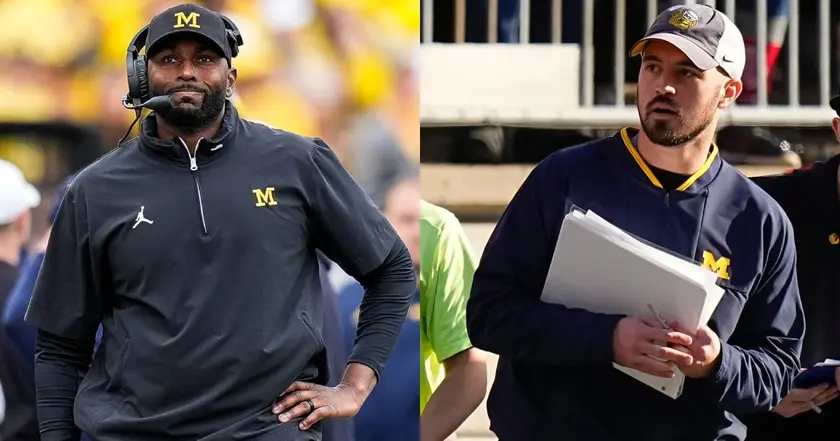T4K3.news
NCAA sanctions Michigan sign stealing ruling
The NCAA announces penalties for Michigan, including postseason revenue forfeiture and suspensions, with no postseason ban.
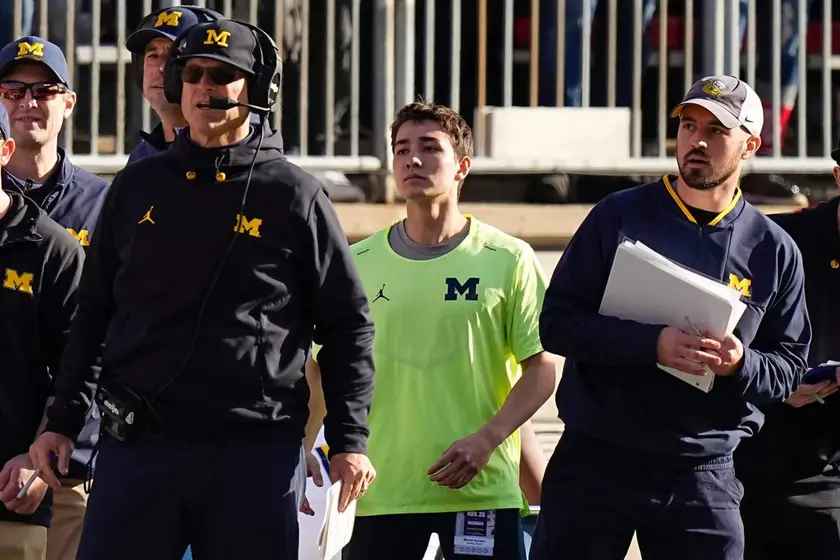
The NCAA penalties include postseason revenue forfeiture and a suspension for the head coach, with no postseason ban.
NCAA fines Michigan and suspends coach over sign stealing
The NCAA Committee on Infractions announced Michigan will forfeit postseason revenue for the next two seasons and pay a fine equal to 10 percent of the program’s budget. Head coach Sherrone Moore will be suspended for three games as part of the penalties. Former coach Jim Harbaugh, now with the Los Angeles Chargers, faces a 10-year show-cause order that would take effect after his previous four-year order, effectively delaying a return to college football until 2038.
Connor Stalions, the former staffer at the center of the scheme, received an eight-year show-cause order that bans him from participating in any athletically related activities at an NCAA school. The COI found overwhelming evidence that Michigan engaged in an impermissible scouting scheme but chose not to impose a postseason ban to avoid punishing players on the roster. The ruling closes a two-year saga that began with the investigation in 2023, which involved outside firms and questions over the use of anonymous sources to substantiate the allegations. The case also raises questions about how penalties are calibrated against staff, coaches, and the broader program.
The committee noted that the penalties aim to deter similar conduct while limiting harm to players who were not accused of wrongdoing. The narrative around Harbaugh’s role and Stalions’s actions has fueled ongoing debate about governance and accountability in college sports.
Key Takeaways
"Rigged investigation"
Stalions' lawyer described the probe in those terms during the proceedings.
"It is our opinion that the NCAA decided the penalties for Connor back in the fall of 2023"
Brad Beckworth stated that penalties were pre-decided according to his view of the process.
"witch hunt"
Beckworth described the investigation using this phrase.
"overwhelming evidence"
The COI described the findings as overwhelming regarding the scouting scheme.
The decision marks a nuanced approach to sanctions in a high profile scandal. By punishing staff and the program financially while protecting players from a postseason ban, the NCAA signals a focus on accountability without erasing the team’s on field accomplishments. Yet the long show-cause periods for Harbaugh and Stalions raise questions about proportionality and fairness, especially when one former leader is moved into the NFL while others face years away from the sideline. The ruling also highlights the fragility of trust in recruiting and signaling practices, and it could recalibrate how universities manage internal investigations in the future. Still, the process underscores how governance in college sports can collide with public perception and fan expectations, inviting ongoing scrutiny of enforcement by the NCAA and member institutions.
Highlights
- Accountability travels beyond the field
- Penalties send a clear signal that schemes have a cost
- Coaches and staff face real limits when rules are bent
- This saga ends with a cautionary note for future investigations
Budget impact and governance concerns
The penalties hinge on revenue forfeiture and a large program budget fine, potentially affecting recruiting and operations. The ongoing dialogue around governance may provoke fan and donor backlash and future legal scrutiny.
The stakes extend beyond this ruling and will shape policy and culture inside college athletics.
Enjoyed this? Let your friends know!
Related News
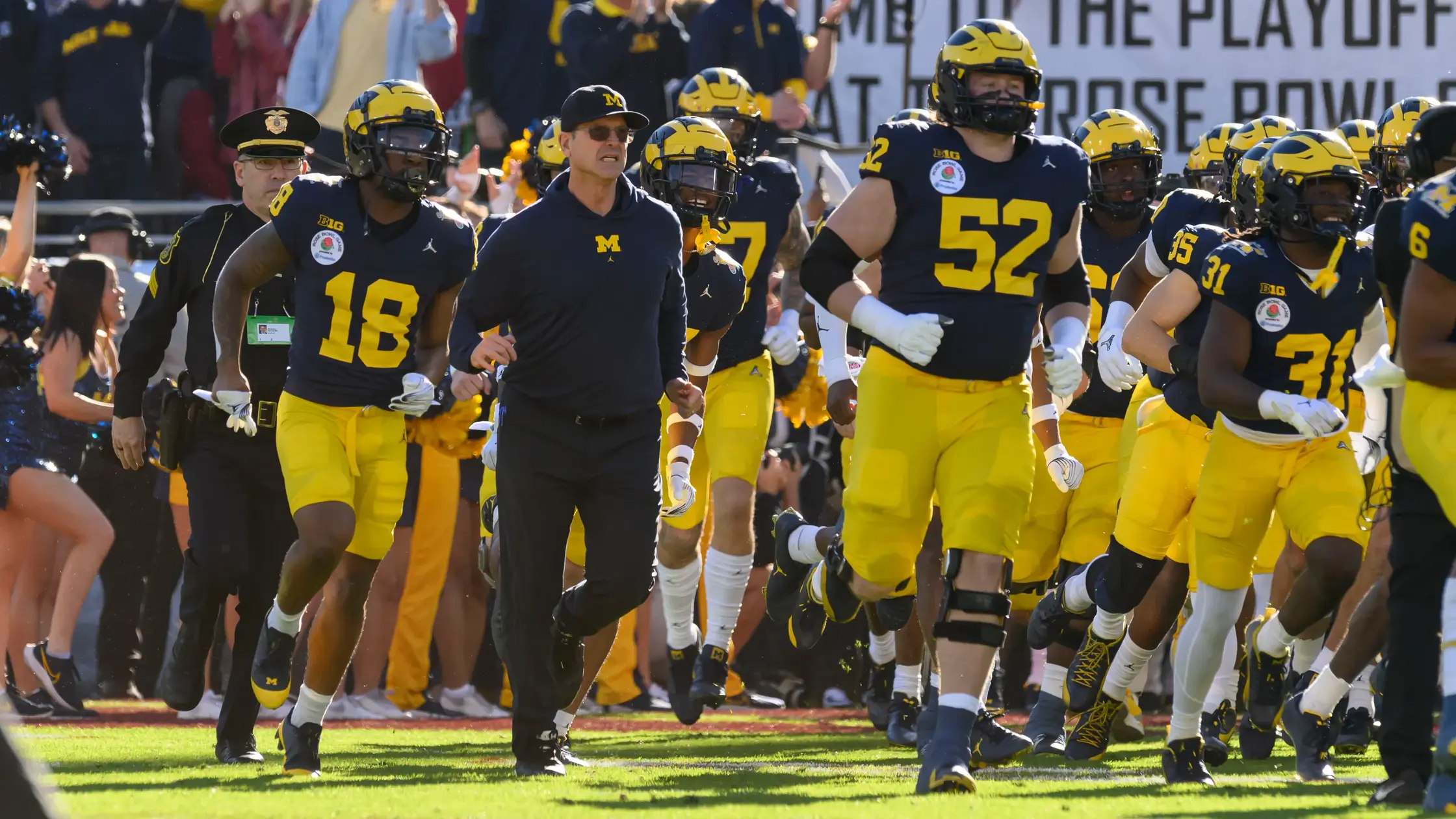
Michigan sanctioned in sign stealing case
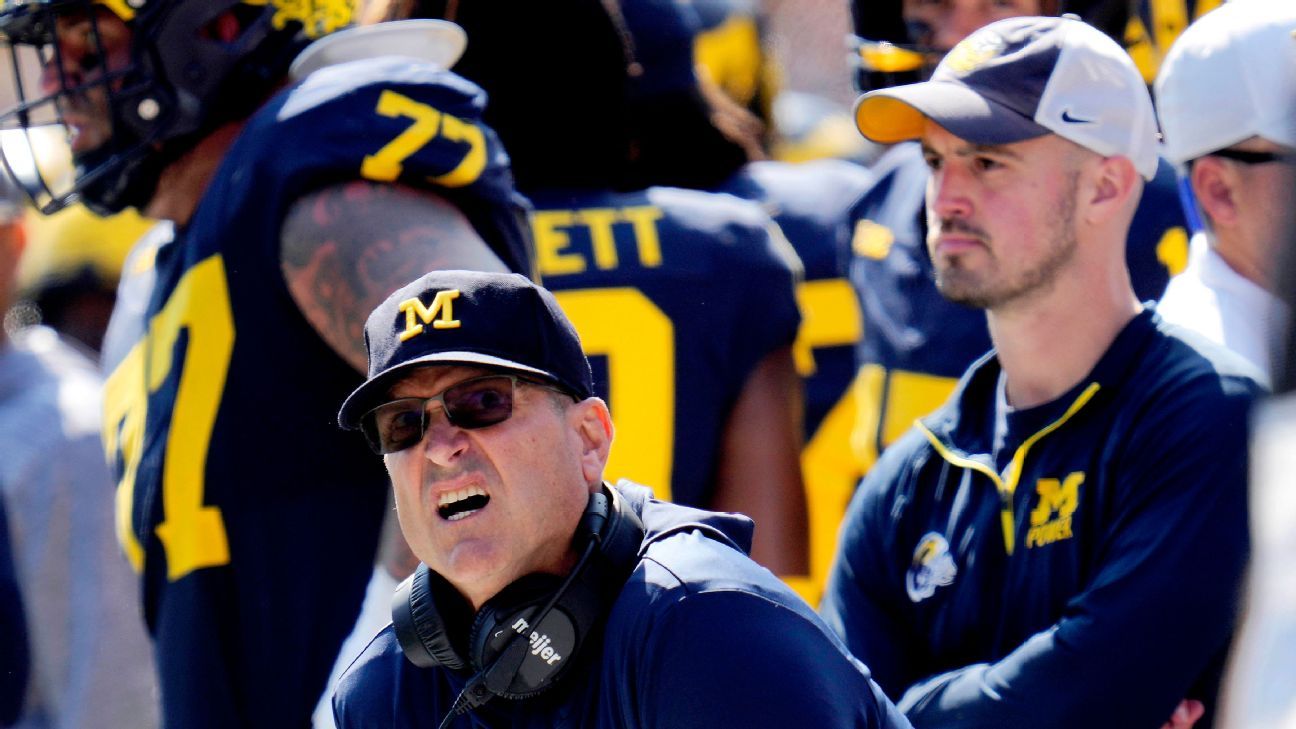
Big Ten commissioner defends Michigan against NCAA penalties
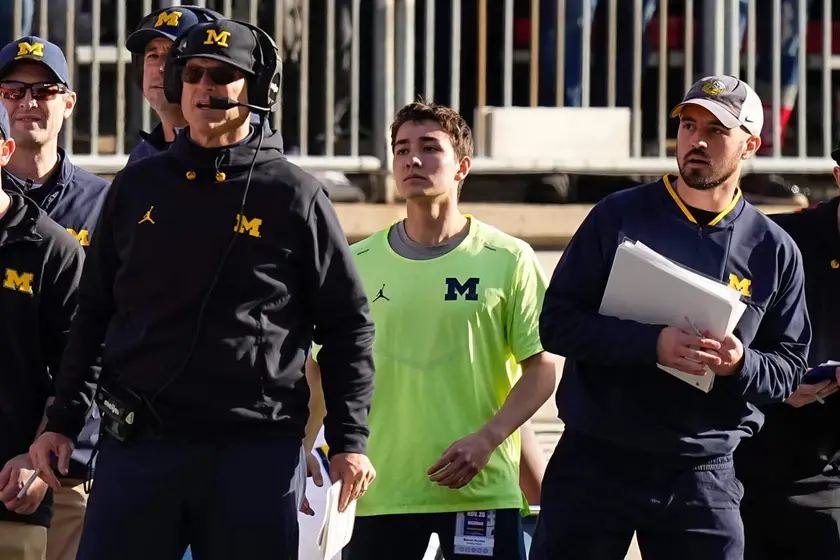
NCAA sets ruling on Michigan sign stealing penalties
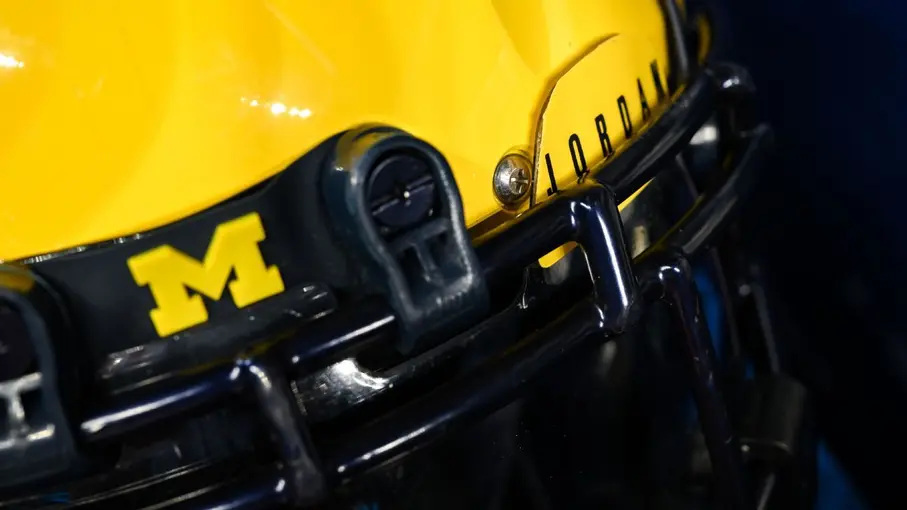
NCAA to release Michigan ruling
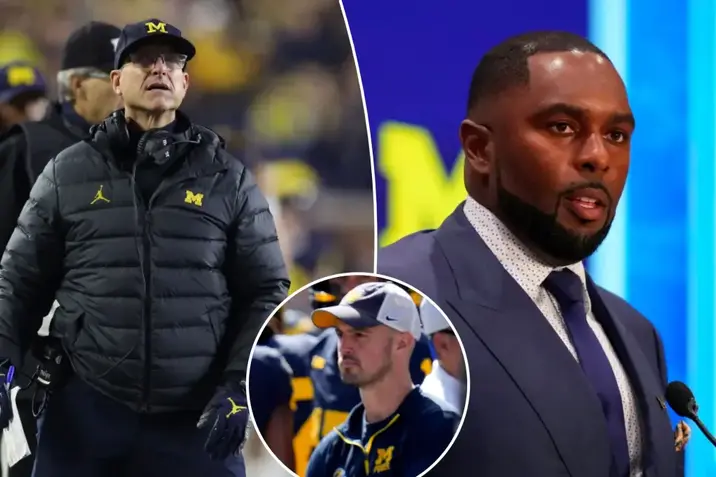
Michigan fined over 20 million in sign stealing case
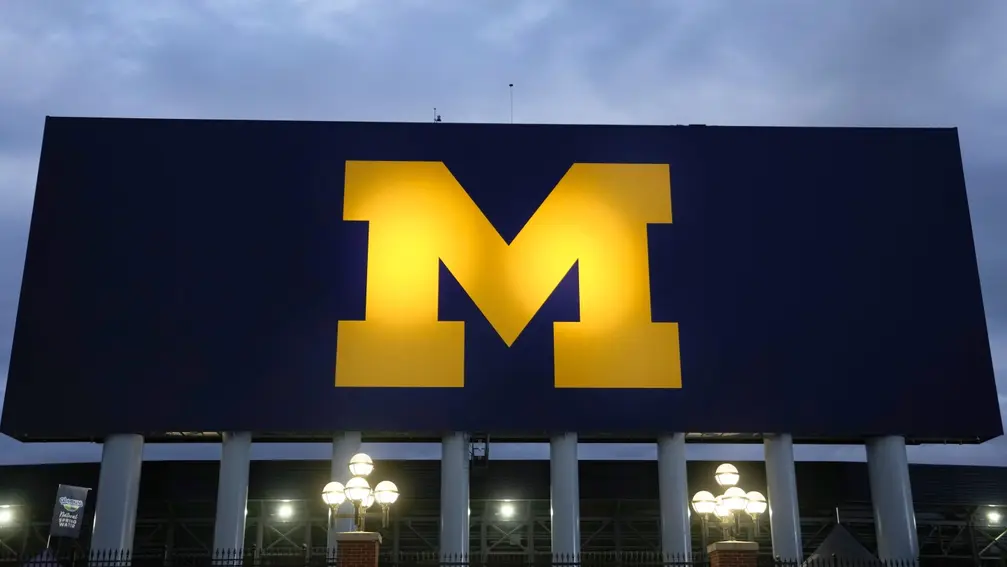
Michigan penalties announced
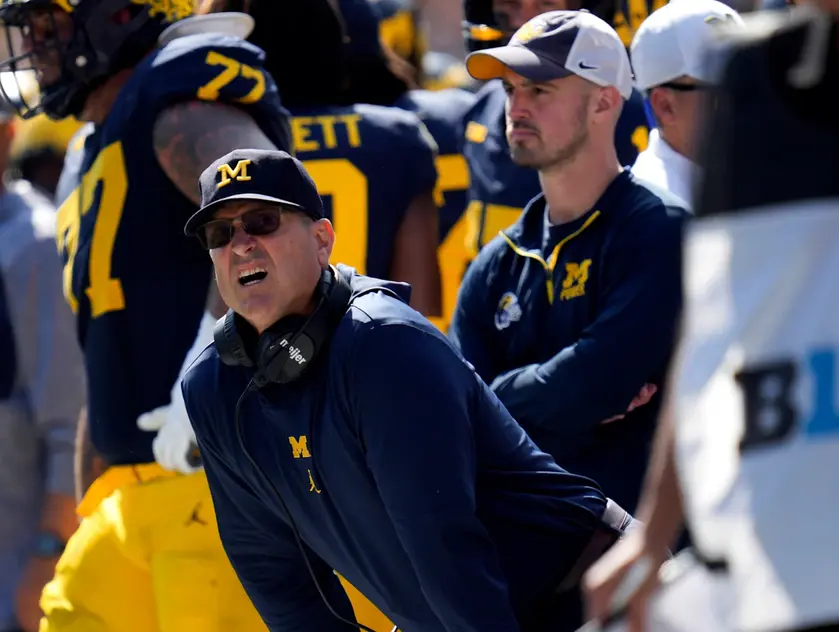
Michigan penalties confirmed by NCAA
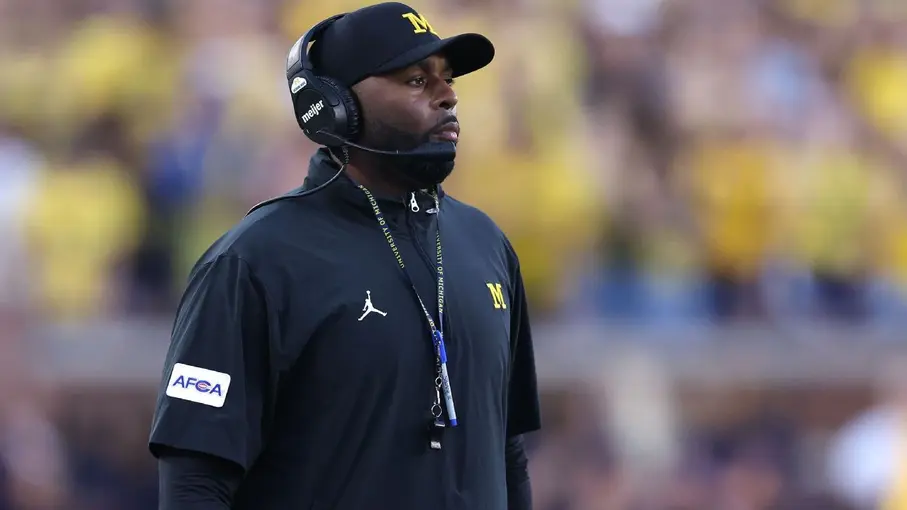
Michigan sanctioned by NCAA
